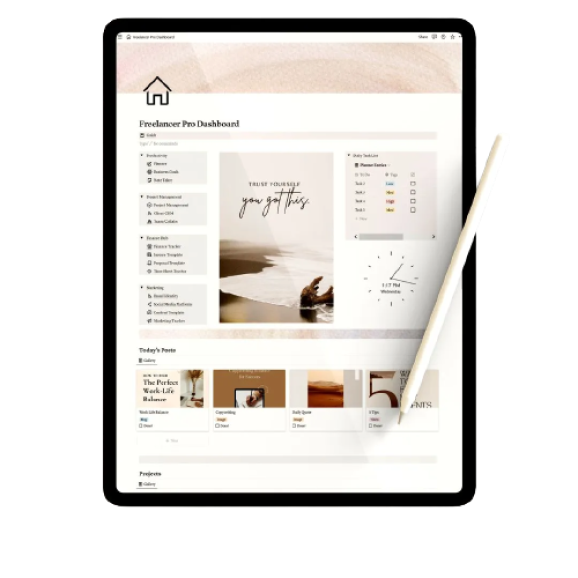Have you ever wondered how easy or difficult it would be to work in another country? Maybe you've thought about the better economic conditions than those in your home country, or you'd like to have more international exposure as well as learn new work cultures. Whatever your motive, working abroad can be an excellent way to open your mind and accelerate your career growth. However, this important career move will not be an easy journey. It is crucial that you think through your decision and prepare yourself before making the leap by creating a local network through networking, getting to know the culture of the country and finding the right organization for your needs.
The difficulty in knowing where to start and how to proceed is enough to deter even the most adventurous people. It is very different to find a job and move from one place to another than the trips you are used to taking on vacations. This is not a negative thing, on the contrary, living abroad is an exciting experience and will surely enhance your personal and professional growth.
So that your trip to work abroad is not as complicated as it can be, here is a list of steps to take to make it happen.
Take stock of your situation.
The first thing to do is to choose the country where you would like to go to work. It may be an easy decision: maybe you have family in another country, an established network of contacts somewhere, or an international company you're looking forward to working for. But, if you still don't know where to apply to work, start by making a list of all the countries where you'd like to live, or work, and from there create a list of companies with offices abroad that match what you're looking for. This will surely narrow down your options.
If you are a freelancer and don't know how to move from one country to another, a great solution could be to study a master's degree or a diploma in that country in order to get the permit. Once you are there, you can expand to look for work, or continue to do it but remotely.
Once you have a specific country in mind and an idea of what you would like to do, it may be useful to conduct a SWOT (Strengths, Weaknesses, Opportunities and Threats) analysis of your potential move. This exercise will help you to put yourself in perspective and plan accordingly. Here is an example of a SWOT analysis:
F: Evaluate the points in your favor.
- I have the education and experience I need to get a job in this new country.
- I adapt easily to change.
- I have enough savings to afford this move.
O: What are your weaknesses?
- I am afraid of leaving my family and friends behind.
- I don't know the language of this new country.
- I don't know how to get a work visa.
D: What opportunities do you see in this situation?
- I know some people in this new country, which could help me start my network there.
- I could get to know new styles of work and become a better global freelancer.
- If I work in this country for a few years, I can get residency and open up more opportunities for myself.
A: What are the threats you should be aware of?
- This new country has a somewhat unstable job market, so it can be difficult to get and keep a job.
- The cost of living is high.
- I may lose recognition and clients in my country.
Build a network in the new country before moving.
The second step in the process of getting a job abroad is to start building your network in that country. The bad news is that finding a job in another country can be very difficult without contacts, but the good news is that networking abroad has never been easier than it is now. One thing you can do is, if you are starting from scratch, try searching Google for networking groups or organizations related to your home country or professional associations in your field.
You can search for phrases like "South Asian women's groups in Sydney" or "American women engineers networking group in London." Or search LinkedIn for former classmates or alumni from the university you attended who are now working in the country you are interested in. It can also be helpful to contact people directly who work in a similar industry or at a specific company where you would like to be hired.
Once you have made contact and people are willing to talk to you about their experiences, here are some questions you can ask:
- How did you find a job in our field in the country?
- What are the qualifications needed to work in your industry?
- What are the most popular hiring sites?
- What is the work environment like? Is it normal to work from home?
- How was your experience getting a visa? Do you have any tips or resources you can share?
- What is the average cost of living?
- What is a reasonable salary in your industry? Where can I get more information?
At the end of each interview, make changes to your SWOT analysis. Keeping it up to date will help you focus on your goals and refine your game plan.
Research specific visa requirements.
Each country has its own rules about work visas. Some countries make it easier to obtain a work visa than others. The same is true for different professions and industries. In a traditional employment situation, the employer has to obtain the work visa for the employee; however, in the case of freelancing it is different. For example in this case you can avoid the need for a work visa if you have funds to open your own business or you can directly obtain permanent residency.
It is important to keep this in mind when considering your options. If you are determined to move to a particular country, you may need to adjust your expectations in terms of industry or function to make it easier for you to get a visa. Or, if you are passionate about a particular job or career path, you may need to look at how easy it is to get a visa in different countries for that career.
Look for the best visa that applies to your situation, the easiest to do, the one that will help you network with the right people, etc. And apply for it. Many countries like Germany and France have a remote work visa, which allows you to work on your freelance career in another country.
Learn the language and culture.
One of the biggest obstacles you will face if you want to move to another country is the possibility of having to learn a new language. This may influence your decision about which country you are interested in moving to; for example, you may choose to go to a country where a language you know is already spoken.
Often, if you want to work with clients in another country, you will be able to use the common language, which is usually English, but there will be others that require you to speak their language. Consider taking language courses while you are there, first of all to learn the language, but also to meet other foreigners in that country who are going through the same thing. This is useful so that, if at some point you need to apply for a job, you can already have your language test passed so that you can be hired.
But beyond the language, you have to learn about the culture. A big mistake that many people make is to think that they will go to another country and continue living the same lifestyle as in their native country. It is very important to know the culture of the country you are in. Keep in mind that just because two countries share the same language or are in a similar part of the world does not mean they share the same work practices. Different organizations and industries can have very different business cultures and work styles, even within the same city or country. That's why it's important to ask questions about cultural norms during your job search and informational interviews. This will help you assess whether you can adapt to a new work culture and determine what you are willing to accept.
Recognize when you need to adapt.
Working abroad is amazing, but at the same time it is very complicated. No matter how much research you have done about the country, visas, jobs, etc. nothing is guaranteed. It may take you longer than expected to take the plunge. Even when you apply for a job in your home country, it can take months to get it; doing the same in a new country could take considerably longer. But even if it's difficult, it's worth it. If this is something you really want, it is something you can achieve. And if at first you don't succeed, reestablish yourself and evaluate your options.
For example, if you get interviews but don't advance, ask yourself: What can I do to improve? Is it my confidence or the language barrier? You can also ask the interviewer for feedback. It may take some time to land a job in a new country, but this also gives you more time to build relationships and research trends and thriving sectors in the country you'd like to move to.
If at the end of the day it really doesn't work out, you can start over and consider another country, redo your SWOT analysis and try again. There are many paths you can take, you just have to experience them.
Always keep in mind that getting a job in another country is exciting, but not always easy. It is an important decision and you should not rush into it. It is important that you think about every step, that you constantly check yourself and that you always keep in mind your ultimate goal.







